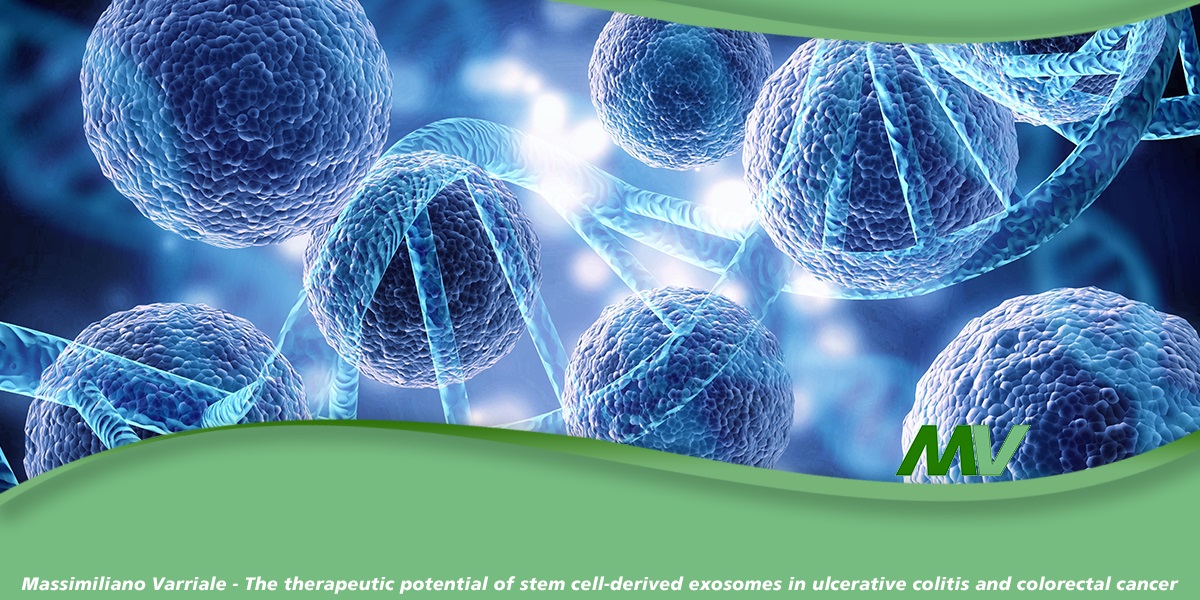The therapeutic potential of stem cell-derived exosomes in ulcerative colitis and colorectal cancer
Mesenchymal stem cell (MSC) therapy is a new treatment strategy for cancer and a wide range of diseases with an excessive immune response such as ulcerative colitis (UC), due to its potent immunomodulatory properties and its ability to regenerate and repair tissues. One of the promising therapeutic options may focus on MSC-secreted exosomes (MSC-Exo), which have been identified as a type of paracrine interaction.
Exosomes derived from various sources of MSCs, including human umbilical cord-derived MSCs (hUC-MSCs), human adipose-derived MSCs (hAD-MSCs), human bone marrow-derived MSCs (hBM-MSCs), and olfactory ecto-MSCs (OE-MSCs), have demonstrated the protective role against UC and CRC.
Exosomes from hUC-MSCs, hBM-MSCs, AD-MSCs and OE-MSCs were found to enhance experimental UC through suppressing inflammatory cells, including macrophages, Th1/Th17 cells, reducing the expression of proinflammatory cytokines, as well as inducing the anti-inflammatory function of Treg and Th2 cells and enhancing the expression of anti-inflammatory cytokines. In addition, hBM-MSC-Exo and hUC-MSC-Exo containing tumor suppressor miRs (miR-3940-5p/miR-22-3p/miR-16-5p) have been shown to suppress the proliferation, migration and invasion of CRC cells through the regulation of RAP2B/PI3K/AKT and ITGA2/ITGA6 signaling pathway.
MSC-Exo can exert beneficial effects on UC and CRC through two different mechanisms, including modulation of immune responses and induction of antitumor responses, respectively.

